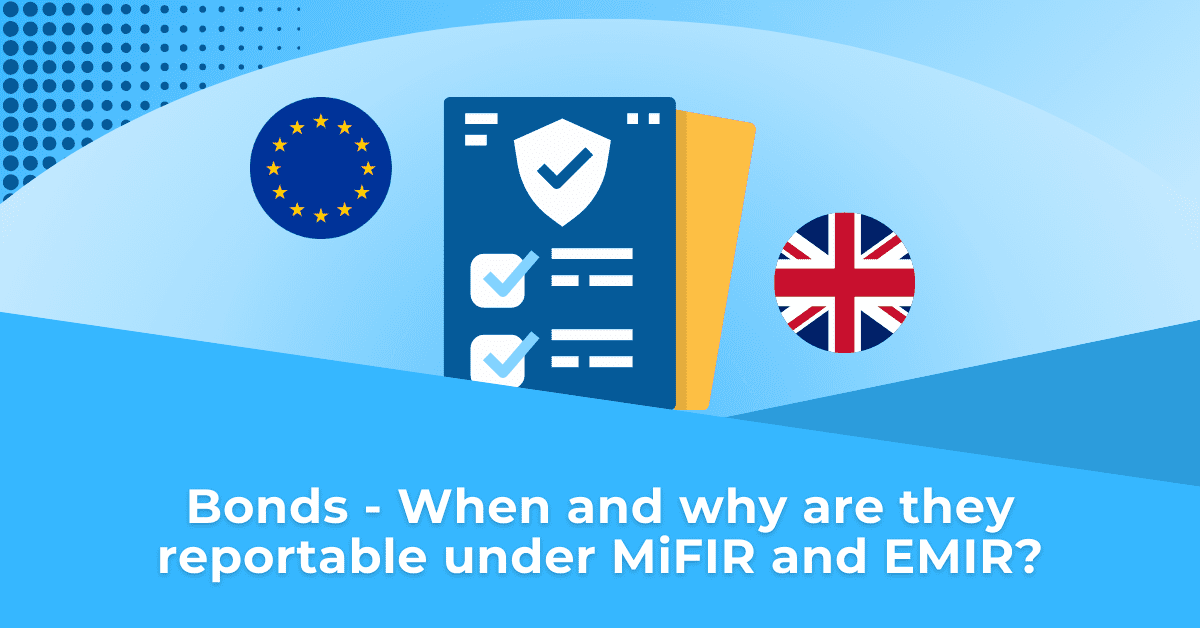UK EMIR (also known as UKMIR) is the UK version of EMIR.
The European Union (Withdrawal) Act 2018 (EUWA) enabled EMIR to be converted into UK law. To make changes to onshore EMIR at the end of the transition period, 4 statutory instruments were introduced, including The Over the Counter Derivatives, Central Counterparties and Trade Repositories (Amendment, etc., and TransitionalProvision) (EU Exit) Regulations 2018.
What’s different in UK EMIR?
UK EMIR is essentially the same as EMIR with slight tweaks made after Brexit. We envisage no substantial difference in the UK EMIR and EMIR instrument reportability for now.
However, here are 2 examples of what is different between the UK EMIR and EMIR regimes:
FCA is the counterpart of ESMA
In terms of trade reporting, the UK Financial Conduct Authority (FCA) has taken over the European Securities and Market Authority (ESMA)’s functions and supervisory roles in the UK to govern the reporting entities that are obliged to report to a UK Trade Repository (TR).
Two sets of EMIR regulations
- Legal terms amended with reference to the UK legislation
Many of the EMIR terms contain references to other EU legislation. Under UK EMIR, these terms have been customised to reference other comparable UK legislation.
- Revocation of some current regulations
Upon Brexit, certain regulations were no longer applicable and were revoked under UK EMIR. For example, ‘College’ under Article 18 of EMIR was omitted from UK EMIR. The term refers to the groups of EU regulators that supervised the central counterparty clearing houses in the EU before Brexit whereas the Bank of England is the competent authority responsible for such role after Brexit.
What trade repositories can I use?
Following Brexit, UK investment firms need to report to a TR registered by the FCA for EMIR reporting.
There might also be a dual reporting obligation under EMIR for some firms across both EU and UK EMIR. Please refer to our other article for detailed information and different scenarios.
Delegated reporting is common for EMIR, what should I consider?
- If you are a UK firm and want to delegate your reporting to an EU firm (counterparty), you will need to check with them if they are willing to report to a UK TR for you.
- If you are an EU firm and want to delegate your reporting to a UK firm (counterparty), you will need to check with them if they are willing to report to an EU TR for you.
What happens to historical EMIR trade reports?
Data transfer across TRs between EU and the UK was required for firms that needed to change TR as part of the no-deal Brexit. Firms in both the EU and UK should ensure you or your reporting delegate have the correct arrangement with relevant TRs to enable all relevant post-Brexit reporting. Both your open and closed positions is held in the new TR post-Brexit.




